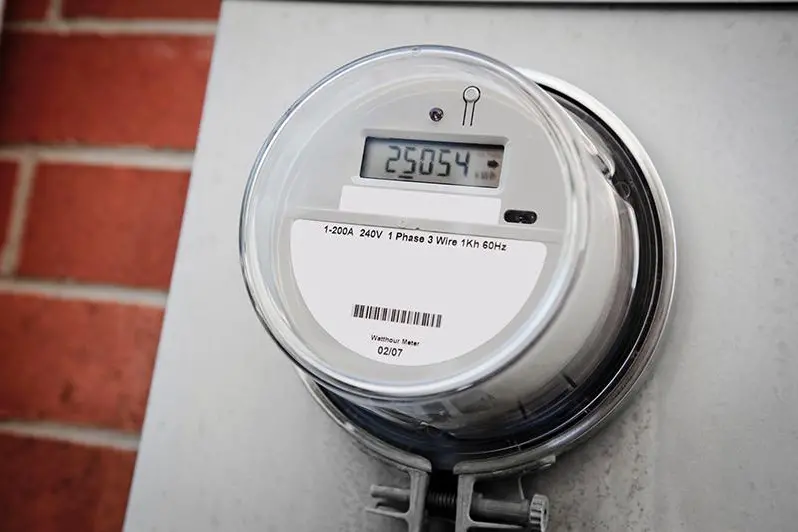PHOTO
(John Kemp is a Reuters market analyst. The views expressed are his own)
LONDON- Like most other energy crises, Britain’s power and gas crunch has a short-term trigger (a sudden surge in international gas prices) but the underlying problems it has exposed have been building up for years.
Britain’s choices over energy market design, price controls, gas-led power generation, charges and billing have reflected the balance of political forces and interest group lobbying, whether they have been deliberate or unconscious.
Policymakers have wanted domestic gas and electricity supplies to be reliable and affordable while lowering emissions, but a surge in global gas prices has revealed the tensions between these objectives.
Wholesale gas and electricity prices have climbed to record levels, but regulated on-bill prices paid by customers have lagged, leading to insolvencies among smaller energy retailers.
Spot market gas prices have climbed by 400% over the last year, while electricity prices are up 250%, but customer bills have risen by less than 10% – though further big increases are planned from October and March.
In practice, contract prices paid for most gas and electricity are usually much lower than the spot market, which handles only a small volume of imbalances between predicted and actual consumption.
And wholesale gas and electricity costs accounted for only 35% of the average customer bill in 2020, with the rest attributable to transmission and distribution charges, operating costs, environmental and social obligations, and taxes.
Retail prices do not, therefore, need to climb anywhere near as much as wholesale prices, but the tripling or quadrupling of wholesale prices while bills increase hardly at all has put unsustainable pressure on retailers’ margins.
SMALL RETAILERS
Even before the latest shock to wholesale costs, retailers’ margins were very low or slightly negative, according to data compiled by Britain’s energy regulator.
The average retail supply margin across the largest incumbent suppliers was negative in 2020, figures from the Office of Gas and Electricity Markets show.
In practice, most of the large incumbent suppliers also own gas production, electricity generation and wholesale trading businesses, where margins are much higher.
Production, trading and retailing are run as integrated businesses, with retail customers providing guaranteed consumption/offtake and an inbuilt short position to trade around.
Integrated suppliers are naturally hedged – losses on the retail side as a result of higher prices are offset by increased profits from production and trading.
In recent years, however, the government and regulator have encouraged a large number of small, non-integrated retailers to enter the market to increase choice and competition.
The stated aim has been to make the market work better by increasing diversity, promoting innovation, improving customer service and holding margins down.
Smaller retailers have been given various advantages, including exemptions from some social and environmental costs, to stimulate market entry and competition.
But their retail-only businesses are not naturally hedged and they are exposed to rising wholesale acquisition prices unless they hedge all their expected and realised supply volumes in the wider market.
Many have proved under-hedged and the exceptional surge in both gas and electricity prices has resulted in unsustainable margin compression, leading to insolvencies.
DESIGN FLAWS
Britain’s energy crisis has been sparked by the worldwide increase in gas prices, but it has also highlighted flaws in the country’s approach to running gas and electricity provision.
Inherent tensions and contradictions between affordability, security and emissions were hidden while gas prices were low, but soaring international gas prices have pushed the conflicts objectives into the open.
Retail competition has been more apparent than real because residential gas and electricity services are essentially homogenous. Most competition has been simply customer churn.
Competition has involved arbitraging regulatory costs and price discriminating between different customer groups, for example discounting tariffs for new customers at the expense of long-standing ones.
In their focus on encouraging competition, policymakers failed to ensure smaller non-integrated gas and electricity suppliers were managing their price risks properly and pursuing sustainable business models.
At the same time, Britain has become unusually dependent on gas, which accounted for 36% of primary energy consumption in 2019, compared with an OECD average of 28%.
Gas is the main heating fuel used in almost 80% of homes. It also accounted for the largest share of electricity generation (41%), ahead of renewables (37%) and nuclear (17%) in 2019.
Britain has made faster than progress than other advanced economies in phasing out the combustion of coal for electricity, but has come to depend heavily on gas as the largest and only flexible source of generation.
However, Britain relied on imports for almost 60% of all the gas consumed in both 2019 and 2020, according to government data (“Digest of U.K. Energy Statistics”, BEIS, 2021).
The result is that almost all of the country’s residential energy system depends on imported gas, which in turn depends on international prices for pipeline gas and especially LNG.
HOUSEHOLD BILLS
In an effort to defuse political pressure about rising gas and electricity bills, and respond to accusations about profiteering, the government and regulator have introduced increasingly stringent controls on retail pricing.
Residential gas and electricity prices have major social, economic and political implications, so they are exceptionally sensitive for policymakers.
In 2019/20, the poorest households in the lowest income decile spent almost three times as much on gas and electricity as those in the highest decile as a proportion of their total spending.
Gas and electricity bills accounted for 7.5% and 7.3% of all spending by households in the two lowest income deciles, compared with 3.1% and 2.7% for households in the two highest deciles.
Rising gas and electricity prices will therefore hit households in the lower half of the income distribution much harder than those in the upper half, worsening poverty and squeezing spending on other goods and services.
Escalating gas and electricity prices come at a delicate time, with the economy still recovering from the coronavirus recession, and a raft of other employment tax and benefit changes that will hit poorer households harder.
ON-BILL CHARGES
On utility bills, the largest single contributor to the price paid is the wholesale cost of energy, accounting for 35% of the bill, but until recently, it had been falling, by an average of 3.7% per year between 2009 and 2020.
The second-largest contributor is the network cost of transmission and distribution, which accounted for 25% of the bill, and increased at an average rate of 1.2% per year between 2013 and 2020.
The third largest item is social and environmental obligations, which have increased at an average annual rate of 7.6% and now account for 15% of the total bill.
Policymakers have discovered that all sorts of social and environmental objectives can be paid for by additions to customer bills, where the costs are far less visible than if they had to be paid for out of general taxation.
The temptation to move policy costs onto bills has been especially strong in periods when wholesale prices have fallen, since the impact on final bills has been masked.
The result is that the average paid 410 pounds to cover wholesale gas and electric costs in 2020 (down from 621 pounds in 2009) but other charges on the bill had grown to 774 pounds (up from 474 pounds).
Policy support to low-income and indebted households as well as support for growth in renewable generation have been charged directly to bills.
In principle, this makes sense since service users should pay associated costs. In practice, gas and electricity spending is proportionately so much higher among the poorest households that charges have been regressive.
John Kemp
(Editing by Barbara Lewis) ((john.kemp@thomsonreuters.com))





















